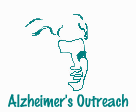 Activities
Activities
By Carol Simpson
 Activities
Activities
By Carol Simpson
If you would
like to print it out in plain text, click HERE
Activities are an essential tool in caring for the person with Alzheimer's and care must be taken to develop a program of varied activities.
Anna Marie Landbo, an activities coordinator states, "People with Alzheimer's respond positively to a structured routine and to a variety of scheduled activities that keep the person active and stimulated." "Activities prevent boredom --- a major cause of agitation and instill a sense of accomplishment as well as boost self-esteem."
Activities are also important because it allows the person with Alzheimer's and the caregiver to spend time doing something that's enjoyable. Physical Activities Keeping an Alzheimer's person active helps expend pent up energy and promotes good sleep patterns.
However, stimulation should be monitored since anxiety, frustration and agitation can come from to much of a good thing.
Thinking Activities
People with Alzheimer's like to solve problems and find solutions. It helps them recognize they have not lost all their former abilities.
Thinking activities also help prompt memories, generate discussions, keep them oriented and gives them a sense of accomplishment. Whatever thinking activities you do; it's important not to present him with mental tasks that are to demanding --- that's not the purpose. Simple "jobs" provide gratification and enjoyment.
Household Chores
It's therapeutic for people with Alzheimer's to continue doing as much as possible for themselves. And they are more than comfortable when they have a familiar routine to follow.
So providing activities that allow them to continue former daily chores such as sweeping, dusting or polishing can be very comforting and satisfying to them and it makes them feel productive and good about themselves.
"Just remember", advises Lisa Gwyther, MSW, "that activities should be meaningful and pleasant. But above all, it should make the person feel dignified and appreciated. What works best are routine tasks and work-related projects that the Alzheimer's person can associate with a dignified adult role."
@ copyright 1996

Hope our logo helps you find your way back to us.